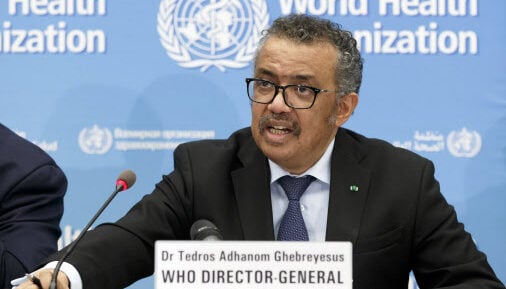
The WHO Director General, Tedros Ghebreyesus, said this while speaking to journalists in Geneva, Switzerland.
Mpox is a less severe cousin of the now-eradicated smallpox virus. It is endemic to parts of West and Central Africa and has typically been contracted from a rodent or small mammal. The virus can spread through contact with body fluids, sores or items such as clothing and bedding contaminated with the virus. Also, it can be spread from person to person through respiratory droplets, typically in a close setting.
“The emergency committee for mpox met and recommended to me that the multi-country outbreak of mpox no longer represents a public health emergency of international concern. I have accepted that advice and I’m pleased to declare that mpox is no longer a global health emergency.
“However, as with COVID-19, that does not mean that the work is over. Mpox continues to pose significant public health challenges that need a robust, proactive and sustainable response,” he said.
The PUNCH reported on May 5, 2023, that WHO announced COVID-19 no longer constitutes a public health emergency of international concern after more than three years of declaring the outbreak to be a PHEIC in January 2020, about six weeks before characterising it as a pandemic.
The DG said adding that there had been more than 87,000 cases of Mpox, with 140 deaths worldwide reported to the organisation from 111 different countries.
However, Ghebreyesus implored countries to maintain their testing capacity and ability to respond to future outbreaks quickly.
All rights reserved. This material, and other digital content on this website, may not be reproduced, published, broadcast, rewritten or redistributed in whole or in part without prior express written permission from PUNCH.
Contact: [email protected]














